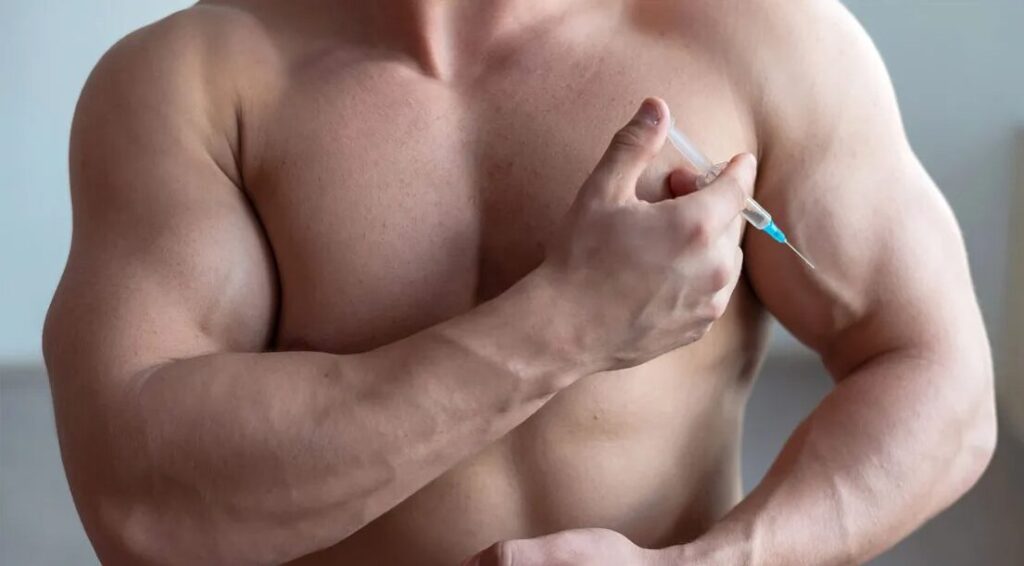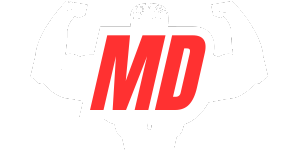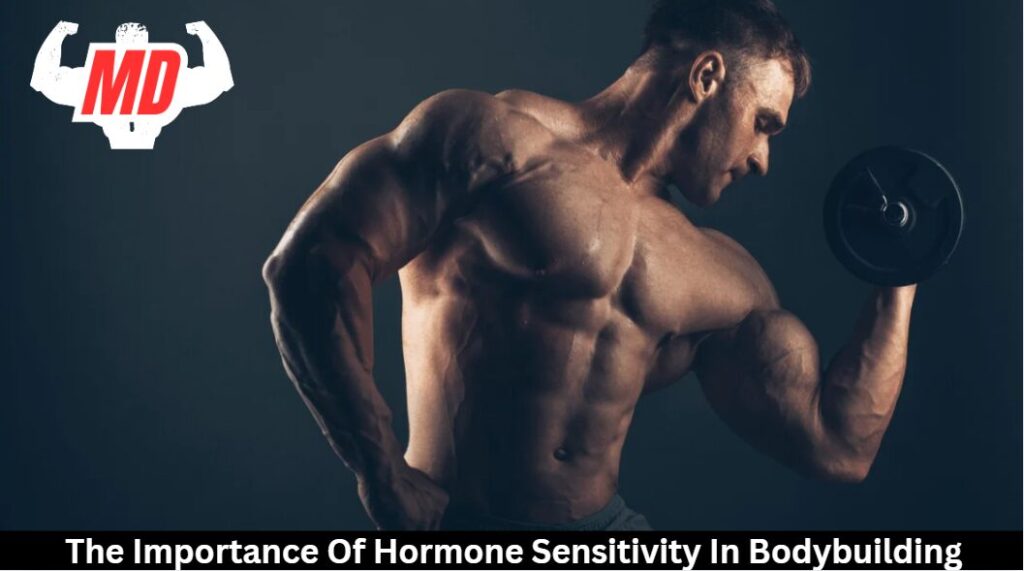Hormone sensitivity determines how effectively your body responds to testosterone, insulin, and growth hormone signals during bodybuilding. When your cells are highly responsive, you’ll build muscle faster and store less fat, even with identical training and diet as someone with poor sensitivity. Sleep quality, nutrition timing, and stress management directly impact these hormone responses.
Optimizing your sensitivity transforms ordinary efforts into extraordinary results, making it an essential factor that many lifters unknowingly neglect in their pursuit of gains.
Understanding Hormone Sensitivity and Its Role in Bodybuilding
Many bodybuilders pay a lot of attention to their training volume and nutrition plans, but hormone sensitivity is the one thing that can make or break their success. This basic idea is about how well your cells react to hormonal signals, not just how much of each hormone is in your blood.
You can have the right amount of testosterone, but if your receptors aren’t sensitive enough, your muscles won’t be able to use its anabolic effects fully. If you have bad hormone sensitivity, you won’t be able to make any more progress, even with the best training and diet.

Key Hormones Involved in Muscle Growth and Fat Loss
Muscle growth and fat loss depend on many factors, but certain key hormones directly influence both processes. Testosterone is the main anabolic hormone that helps muscles grow, recover, and make proteins. How sensitive your body is to testosterone is often more important than how much you have.
Insulin sensitivity plays a key role in determining how your body distributes and uses nutrients. Cortisol manages stress responses that can either support or slow progress, while growth hormone assists with recovery and the breakdown of fat for energy. Thyroid hormones regulate overall metabolism, and estrogen influences fat storage patterns and muscle function.

Factors Affecting Hormone Sensitivity
Your body’s response to hormones changes based on several controllable factors that directly impact your bodybuilding results. Sleep quality and duration greatly influence testosterone production and insulin sensitivity, with even one night of poor sleep reducing your anabolic potential.
Your nutrition choices, particularly carbohydrate timing and quality, directly affect insulin sensitivity. Meanwhile, consistent overtraining leads to chronically elevated cortisol levels that can disrupt estrogen balance and blunt muscle growth.
Body fat percentage plays an essential role, too. Excess adipose tissue converts testosterone to estrogen and reduces insulin sensitivity. Chemicals in plastics and pesticides that disrupt hormones may throw off your hormonal balance and limit the effectiveness of your workouts.

Strategies to Improve Hormone Sensitivity for Optimal Results
Making smart changes to your training, diet, and way of life can greatly improve hormone sensitivity, changing how your body reacts to the same hormonal signals. Add short, intense workouts that make your body release growth hormone and keep cortisol levels low. Cut back on refined carbs to make your body more sensitive to insulin. When your muscles are getting ready to take in nutrients, eat complex carbs before and after workouts.
Quality sleep is non-negotiable, as it’s when your growth hormone peaks naturally. Aim for 7-9 hours in complete darkness to maximize this anabolic window. Intermittent fasting protocols can reset insulin sensitivity, while regular exposure to sunlight helps regulate hormone production cycles.
Strategic stress management through meditation or nature exposure reduces cortisol’s negative impact on testosterone and growth hormone function.
The Connection Between Hormone Sensitivity and Overall Performance
Hormone sensitivity is what really matters when it comes to how well your body turns effort into results. Technical skills and training volume are important, but hormone sensitivity is what really matters. Athletes who are more sensitive to hormones get more muscle from the same amount of training and get more out of their food.
You may notice that when your insulin sensitivity improves, your body sends more nutrients to build muscle instead of storing fat. It starts a good cycle. You’ll make your metabolism work even better as you build more muscle.
Similarly, when your body responds more effectively to testosterone, growth hormone, and other anabolic signals, you recover more quickly between sessions and adapt more efficiently to training stress.
The difference between good and exceptional results often isn’t about working harder but optimizing your body’s ability to respond to hormonal signals.
Frequently Asked Questions
How does getting older change how sensitive hormones are in experienced bodybuilders?
As you age, you’ll experience declining hormone sensitivity, requiring more strategic training, nutrition, and recovery. You’ll need to prioritize sleep, manage stress, and adjust workouts to maintain muscle mass despite these natural changes.
Can Genetic Testing Predict Individual Hormone Sensitivity Responses?
Yes, genetic testing can find differences in receptor genes that affect how sensitive you are to hormones. You’ll learn how your testosterone, insulin, and cortisol levels respond, which will help you better plan your training and diet.
Are Hormone Sensitivity Issues Reversible After Prolonged Steroid Use?
Yes, hormone sensitivity can partially recover after steroid use, but it takes time. You’ll need consistent lifestyle changes, proper PCT protocols, and patience—full recovery varies between individuals and depends on usage history.
How Do Common Medications Impact Hormone Receptor Function?
Many medications can impair your hormone receptor function. Painkillers affect testosterone reception, antidepressants alter serotonin sensitivity, statins impact testosterone, and antibiotics disrupt the gut microbiome, which influences hormone processing.
When Should Bodybuilders Consider Hormone Sensitivity Testing?
Consider testing when you’ve hit stubborn plateaus, experience unusual fatigue, struggle with body composition despite proper training, or before starting any hormone-related protocol. It’s especially valuable if you’re over 35.



